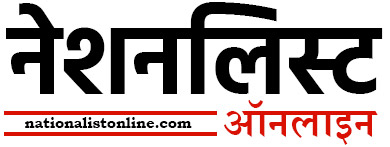Vaibhav Chadha
“Pakistan forgets that it rains bombs from fighter planes on citizens of its country”, Prime Minister Narendra Modi said in his concluding remarks at an all-party meet to discuss the recent Pakistan sponsored turmoil in Kashmir. “Time has now come that Pakistan will have to answer to the world about the atrocities being committed on people in Balochistan and Pakistan-occupied Kashmir”, he added. These remarks by Modi were welcomed by Baloch leaders who have been resisting the illegal occupation of their region by Pakistan. Exiled leader Naela Quadri Baloch said, “We, the people of Balochistan, Pakistan and PoK thank you (Modi) for your support.” Another Balochistan activist ,Hammal Haider Baloch, remarked, “We welcome Prime Minister Modi’s statement to support the freedom movement of Balochistan.”
Pakistan and China are together developing the Gwadar port in Pakistan’s southwestern province of Balochistan. The Chinese project is a new effort by Pakistan’s dominant ethnic group, the Punjabis, to dominate the homeland of Baloch people, and Baloch nationalists see it as an effort to drown out their calls for independence. The handing over of Gwadar port to China by Pakistan will cause the displacement of the Baloch people and lead to their exploitation. Many Baloch activists accuse the Pakistan Government of treating Balochistan as a colony and appropriating its energy and mineral resources, thus depriving the natives of their natural wealth.
While delivering the Independence Day Speech on August 15 from the Red Fort, Modi highlighted the response his statements had received from activists of these regions. He said, “I want to tell all that I got tremendous response from people belonging to Balochistan, Gilgit and Pakistan- occupied Kashmir. The way they have complimented me (for the stand in the all-party meeting), I am grateful to them. I have never seen these people. I have never seen these places. But they have thanked me.” The policies of the Pakistan Government in the Baloch region concede the fact that the Baloch people are being neglected economically, socially and politically by Pakistan. By rejecting the demand of nationhood of Balochistan, Pakistan is disregarding the right of self-determination of the Baloch people.
Pakistan and China are together developing the Gwadar port in Pakistan’s southwestern province of Balochistan. The Chinese project is a new effort by Pakistan’s dominant ethnic group, the Punjabis, to dominate the homeland of Baloch people, and Baloch nationalists see it as an effort to drown out their calls for independence. The handing over of Gwadar port to China by Pakistan will cause the displacement of the Baloch people and lead to their exploitation. Many Baloch activists accuse the Pakistan Government of treating Balochistan as a colony and appropriating its energy and mineral resources, thus depriving the natives of their natural wealth.

In past, much of the land around Gwadar had also been usurped by the Pakistan Government officials who made huge profits out of it. This had created a furore among the Baloch people, but the resentment of the Balochs against such practice was responded to by the PakistaniGovernment with a hardline approach, by stationing soldiers in that area.
Developments in Gilgit-Baltistan (areas in PoK) show the sad state of affairs in these regions too. Since long, a simmering rebellion has been growing against the Pakistani rule in Pak-occupied Kashmir and with the influx of estimated 7,000 to 11,000 soldiers of China’s People’s Liberation Army (as per a 2010 report published in New York Times) in this region, the native ethnic groups have started feeling threatened. The fact remains that Gilgit and Baltistan are in effect under military rule. The activists in these regions want a democratically elected legislature and other institutions without restrictions, but their voices are crushed by the Pakistan Government.
Abdul Hamid Khan of the Balwaristan National Front, while addressing the 13th session of the UN Human Rights Council in Geneva on March 16, 2010, said, “Human rights abuses are widespread and common in Gilgit- Baltistan for many decades but the absence of local media and independent judiciary have helped Islamabad to hide its illicit practices… More than 200 political activists and leaders of this land, including me, are facing death sentence in sedition charges, because we dared to protest against Pakistani occupation in peaceful public gathering.”
The elimination of Shia Muslims with the active support of Pakistan Army is common in the PoK region, and media and human right activists are not allowed to enter the region and report such atrocities.
In April 2016, hundreds of students in Pakistan-occupied Kashmir were protesting peacefully against the Pakistan Army and demanding an independent Kashmir, but the brutal police in the region attacked the peaceful procession with batons. Also recently, Pakistan was accused by the Asian Human Rights Commission of using excessive force against residents of the region. Another picture of the conditions of the residents of Gilgistan- Baltistan region can be imagined from the very fact that as many as 500 youngsters were arrested because they were protesting against the China -Pakistan Economic Corridor (CPEC) when Pakistani officials visited the region. Residents of the region were protesting because they believed that the CPEC will only benefit Pakistani Punjabi traders and they will be deprived of any economic benefit.
In this window of opportunity, India’s strategy should be to diplomatically internationalise the instances of human rights violations by Pakistan in Balochistan and PoK. Time has now come for people of India to stand behind the oppressed in PoK and Balochistan to expose Pakistan before the world community.
(The writer is research associate at Dr Syama Prasad Mookerjee Research Foundation, New Delhi)
